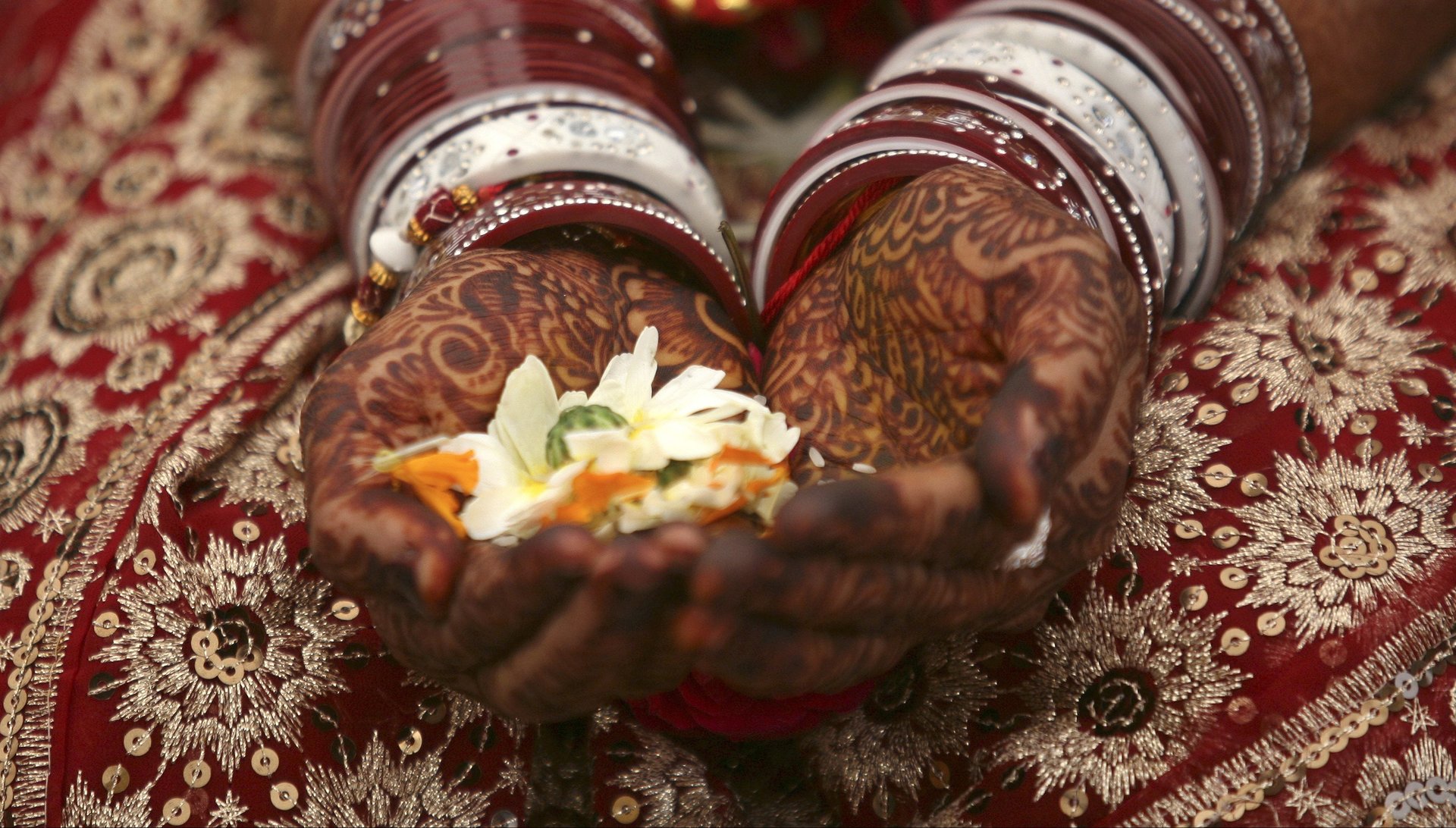India’s biggest tax reform is choking the country’s big fat wedding industry
A year after demonetisation left India’s big fat wedding industry hamstrung, the goods and services tax (GST) is likely to take the wind out of the country’s biggest nuptial season again.


A year after demonetisation left India’s big fat wedding industry hamstrung, the goods and services tax (GST) is likely to take the wind out of the country’s biggest nuptial season again.
The Rs100,000 crore industry could be down by between 10% and 15% this time as families are likely to cut costs on account of higher taxes under the GST, the Associated Chambers of Commerce and Industry of India (Assocham) said in a note on Oct. 23. The wedding season in India typically begins in November and ends in March.
“It is being estimated that the average cost of many wedding services like shopping, tent booking, food services, etc, is higher due to GST. That’s because the tax rate on such services is now between 18% to 28%,” Assocham, an industry body, said.
Most vendors in businesses like tent rentals, confectionery, and flower supply were part of India’s informal economy in the pre-GST era. They frequently under-invoiced their products and services as providing proper bills was rarely mandatory. As a result, tax evasion was rampant. But now, customers will have to shell out for taxes over and above the actual costs.
Since weddings in India are often a lavish affair, higher taxes on gold, apparel, hotel rooms, photographers, and makeup artists are likely to add to the costs. “Families are either revising their budgets or looking to slash expenses to ensure they don’t exceed the original budget by a big margin,” Assocham said.
This will hit an industry already reeling under the effects of demonetisation, which came without warning at the onset of the last wedding season. The overnight withdrawal of two high-value notes forced families to postpone or even call off wedding plans.
Urban Indian households, on average, spend $75,000 on weddings, according to 2016 estimates by Goldman Sachs. Weddings in India are closely linked to one’s social standing and often are an indication of one’s wealth. Families spend up to a fifth of their savings on weddings, according to Assocham. These expenses include hospitality, gold, the wedding trousseau, and gifts.
There is, however, one segment that is likely to remain unaffected by the GST: destination weddings. Assocham expects families hosting weddings at luxury hotels, palaces, and overseas destinations—which account for 10% of the overall Indian wedding industry—to continue to splurge.